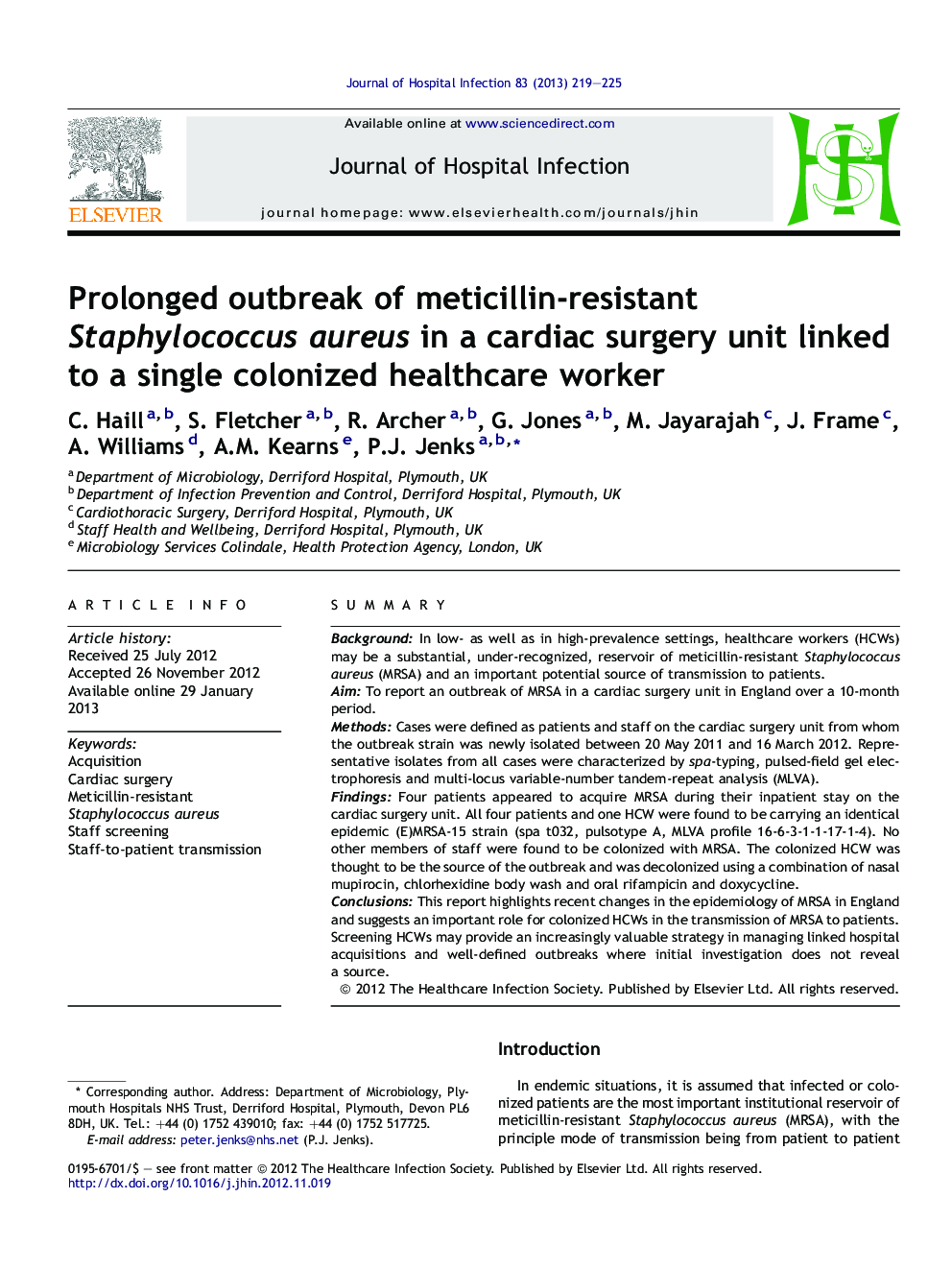| Article ID | Journal | Published Year | Pages | File Type |
|---|---|---|---|---|
| 3371772 | Journal of Hospital Infection | 2013 | 7 Pages |
SummaryBackgroundIn low- as well as in high-prevalence settings, healthcare workers (HCWs) may be a substantial, under-recognized, reservoir of meticillin-resistant Staphylococcus aureus (MRSA) and an important potential source of transmission to patients.AimTo report an outbreak of MRSA in a cardiac surgery unit in England over a 10-month period.MethodsCases were defined as patients and staff on the cardiac surgery unit from whom the outbreak strain was newly isolated between 20 May 2011 and 16 March 2012. Representative isolates from all cases were characterized by spa-typing, pulsed-field gel electrophoresis and multi-locus variable-number tandem-repeat analysis (MLVA).FindingsFour patients appeared to acquire MRSA during their inpatient stay on the cardiac surgery unit. All four patients and one HCW were found to be carrying an identical epidemic (E)MRSA-15 strain (spa t032, pulsotype A, MLVA profile 16-6-3-1-1-17-1-4). No other members of staff were found to be colonized with MRSA. The colonized HCW was thought to be the source of the outbreak and was decolonized using a combination of nasal mupirocin, chlorhexidine body wash and oral rifampicin and doxycycline.ConclusionsThis report highlights recent changes in the epidemiology of MRSA in England and suggests an important role for colonized HCWs in the transmission of MRSA to patients. Screening HCWs may provide an increasingly valuable strategy in managing linked hospital acquisitions and well-defined outbreaks where initial investigation does not reveal a source.
